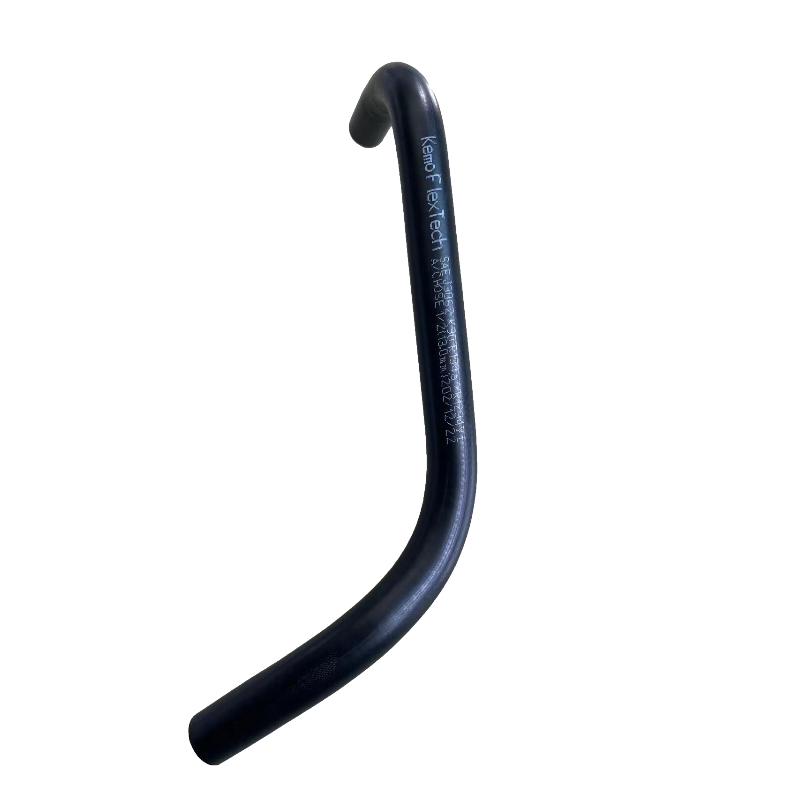Fuel transfer hose for efficient and safe transportation of liquids and fuels.
Jul . 11, 2024 12:37 Back to list
Fuel transfer hose for efficient and safe transportation of liquids and fuels.
Fuel transfer hoses are an essential component in the automotive and industrial sectors, providing a safe and efficient way to transport fuels from one location to another. These hoses are specifically designed to handle the transfer of gasoline, diesel, and other petroleum-based fuels, ensuring that they remain secure and leak-free during the transportation process.
One of the key features of fuel transfer hoses is their durability and flexibility. Made from high-quality materials such as nitrile rubber or PVC, these hoses are capable of withstanding the harsh conditions of fuel transfer, including high temperatures and pressures. Additionally, their flexibility allows for easy maneuverability around obstacles, making them suitable for use in a variety of settings, including fuel stations, construction sites, and industrial plants.
Another important aspect of fuel transfer hoses is their resistance to abrasion and corrosion. These hoses are designed to withstand the wear and tear of daily use, ensuring that they maintain their integrity over time. Additionally, their resistance to corrosion prevents them from deteriorating when in contact with various fuel types, prolonging their lifespan and reducing the need for frequent replacements.
Safety is also a top priority when it comes to fuel transfer hoses. These hoses are equipped with various safety features, such as anti-static properties and grounding wires, to prevent the buildup of static electricity during fuel transfer

fuel transfer hose. This reduces the risk of sparks that could potentially ignite the fuel and cause a fire or explosion. Additionally, some fuel transfer hoses are equipped with pressure relief valves to prevent over-pressurization, further enhancing their safety during operation. Proper maintenance and storage of fuel transfer hoses are essential to ensure their optimal performance and longevity. Regular inspections should be conducted to check for signs of wear and tear, such as cracks or leaks, and damaged hoses should be replaced immediately. When not in use, fuel transfer hoses should be stored in a cool, dry place away from direct sunlight and harsh chemicals to prevent degradation of the materials. In conclusion, fuel transfer hoses play a crucial role in the safe and efficient transportation of fuels in various industries. With their durable construction, flexibility, and safety features, these hoses provide a reliable solution for transferring fuels from one location to another. By ensuring proper maintenance and storage, fuel transfer hoses can continue to perform effectively, contributing to the smooth operation of fuel distribution systems.

fuel transfer hose. This reduces the risk of sparks that could potentially ignite the fuel and cause a fire or explosion. Additionally, some fuel transfer hoses are equipped with pressure relief valves to prevent over-pressurization, further enhancing their safety during operation. Proper maintenance and storage of fuel transfer hoses are essential to ensure their optimal performance and longevity. Regular inspections should be conducted to check for signs of wear and tear, such as cracks or leaks, and damaged hoses should be replaced immediately. When not in use, fuel transfer hoses should be stored in a cool, dry place away from direct sunlight and harsh chemicals to prevent degradation of the materials. In conclusion, fuel transfer hoses play a crucial role in the safe and efficient transportation of fuels in various industries. With their durable construction, flexibility, and safety features, these hoses provide a reliable solution for transferring fuels from one location to another. By ensuring proper maintenance and storage, fuel transfer hoses can continue to perform effectively, contributing to the smooth operation of fuel distribution systems.
